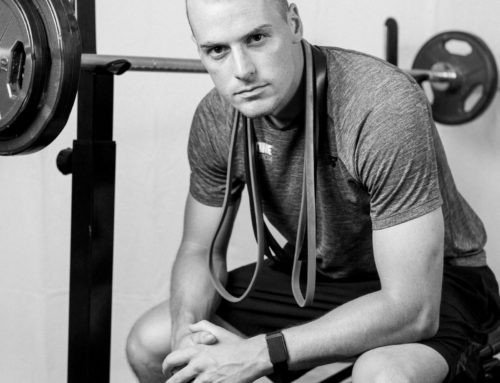Having a trainer as a guide can be empowering. Not only will you feel capable in your workouts, but you’ll also gain the confidence to perform exercises the right way and you won’t have to deal with the decision fatigue of figuring out the type, timing, and number of workouts you should be doing. Investing in a good trainer will pay you back dividends down the road. Unfortunately the personal training industry is a saturated market. For all the well-equipped, exceptional trainers in the industry, there are as many—if not more—trainers that don’t take their craft seriously.
Anyone can make you sore, sweaty and tired but good trainers implement the right kind of strength and conditioning that produces lasting change and increases performance outside of the gym. From what I’ve seen, many trainers treat their job as a temporary gig and ultimately leave the fitness industry for another career. Below are some tips to find a trainer who’s in it for the long haul and takes their training career seriously.
- Do they have experience working with different types of clients?
The best trainers I’ve worked alongside could coach anyone from a 16-year-old athlete to a 70-year-old senior citizen. I am not saying all trainers must be completely competent in every last area, but good trainers will know how to adapt their programs according to the wide-ranging needs of their clients. Some trainers have specialties or niche expertise, but it’s worth noting that they developed those specialties because they spent time training all sorts of people. Good trainers have hours of experience on the training floor with parents who want to change body composition or address low back pain, to athletes looking to excel in their sport. They have put their time in and are worth their price.
Personal trainers with experience will know what language to use with you, how to implement appropriate starting points, and will demonstrate knowledge on when and how to progress. They will deliver a strength program that is safe and effective ALL while making the experience enjoyable and motivating.
- Do they help YOU facilitate change?
The best trainers are those that help you implement a healthy lifestyle not just during their sessions but in all areas. They support their clients in figuring out how to make changes on their own, they recognize their capabilities, and encourage them along a path to a lifelong journey of health. It’s one thing to workout 2-4 hours a week, but a good coach will help you think about all 168 hours of the week. They help their clients learn to utilize time outside of training sessions to enact other behavior changes in realistic and motivating ways. Good trainers know that it’s ultimately on YOU to change but they’ll facilitate that process by asking great questions and motivating clients to take steps in the right direction. As the old cliché goes “You can take a horse to water, but you can’t make it drink. However, you can make it very thirsty.”
- Are they always working on deepening their education?
If trainers let their own education slide for too long, it’s a sign that they aren’t committed to their craft for the long run and may be losing passion for coaching. Although experience is the ultimate educator, the best trainers I know spend weekends at seminars, listen to fitness related podcasts, read articles, and work on their interpersonal skills. The process of education becomes a lifestyle and something that is ingrained in trainers over time.
Be wary of trainers that avoid sharpening their skills, as this is an indication of complacency and lack of drive or passion. The more you study and learn, the more you realize you have more to study and learn. I would rather train with someone who admits to not knowing everything than with a trainer who swears their method is the end all be all.
- Does the trainer have a workout planned for you?
If you go into a gym and observe the training, there will usually be one or two trainers who are winging it with their clients. No plan equates to no results. Good trainers should have a thought-out and planned workout for every session. They should also be able to explain the reason WHY you are doing the movements that have been selected for YOU specifically. When you are paying a trainer for an hourly rate, don’t waste your money on one that looks around the gym in the middle of a session wondering what exercise to do next.
Good trainers should also be able to adapt on the fly. Life happens and sometimes circumstances don’t go according to plan. Clients come in for a session after a bad night’s sleep, an exhausting weekend, or a minor setback or injury that will affect their capacity and workout needs. Trainers must take all of this into consideration and modify their plans when needed.
The best way for trainers to incorporate successful flexibility when needed is to communicate up front and set expectations. Your trainer should let you know that they have a plan for every workout, and that sometimes the plan may need to change, but that they have your overall health and success in mind. If you hire a trainer and they set these expectations with you up front, that’s a good sign. If you hire a trainer who jumps right into random workouts without explaining anything or working to build your trust, you should look for another trainer.
Ultimately, if the value that a trainer provides exceeds the price they charge, then you are in good hands. Asking for referrals from friends and family and reading reviews is a good place to start. But once you hire someone, look for the four criteria mentioned above as you go about your training. You will have a good sense of whether or not it is the right fit within a couple training sessions.




